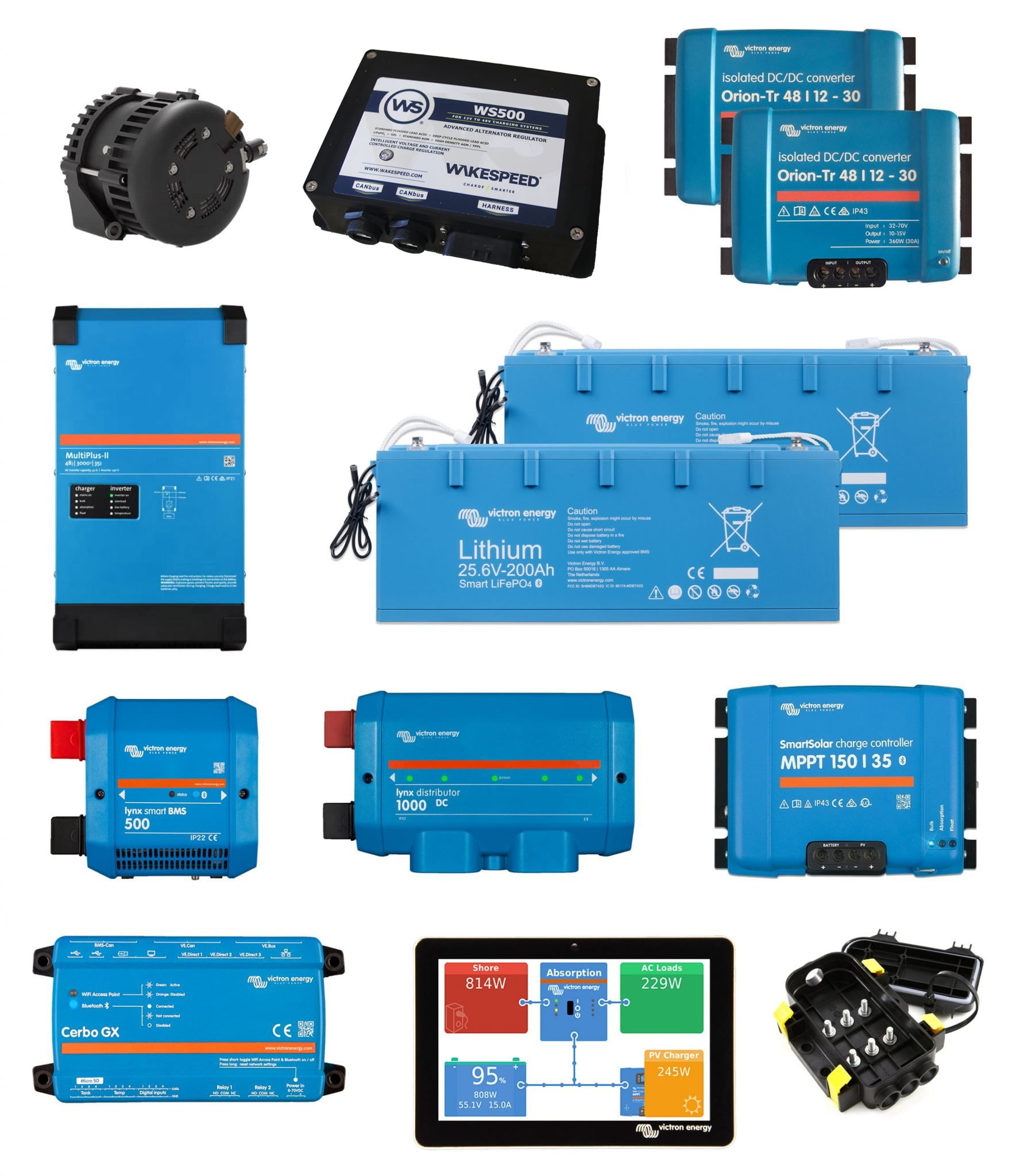Ariel188
New Member
Hello everyone!
So I plan to have a large build in my Sprinter 170 ext dually.
I an planning on this build (done by my van builder who has only done 12 volt small systems....)
On roof 700-800 watts of walkable solar panels. https://www.custommarineproducts.com/semi-rigid-walk-on-marine-solar-panels.html
and 800-1200 amp batteries (dont know which one yet.)
I wanted to do 48 volt but everyone is saying I should do 12.....I am confused I need more opinions please.
I will have rixan diesel heater, cruise N comfort AC at 12 or 48 volt, induction stove, breville oven, washer, use a vitamix blender daily, instapot, food processor, gaming computer, I plan to buy a SECOND alternator (280 nations) so I need a system that will charge as fast as possible with the second alternator. I will also have shore power connection, and even EV charger port. I will be hiring a builder to build my van and do the solar. He has never done a 48 volt thou. I have allocated 20K for my solar system (but would love to NOT spend that much, to have an amazing system that is limit less) so I never have to struggle again with power like I do now in my 42 ft RV with 48 volt put in by someone with no experience........ Thank you for the thoughts, advice, and opinions to help a girl out! ;-)
So I plan to have a large build in my Sprinter 170 ext dually.
I an planning on this build (done by my van builder who has only done 12 volt small systems....)
On roof 700-800 watts of walkable solar panels. https://www.custommarineproducts.com/semi-rigid-walk-on-marine-solar-panels.html
and 800-1200 amp batteries (dont know which one yet.)
I wanted to do 48 volt but everyone is saying I should do 12.....I am confused I need more opinions please.
I will have rixan diesel heater, cruise N comfort AC at 12 or 48 volt, induction stove, breville oven, washer, use a vitamix blender daily, instapot, food processor, gaming computer, I plan to buy a SECOND alternator (280 nations) so I need a system that will charge as fast as possible with the second alternator. I will also have shore power connection, and even EV charger port. I will be hiring a builder to build my van and do the solar. He has never done a 48 volt thou. I have allocated 20K for my solar system (but would love to NOT spend that much, to have an amazing system that is limit less) so I never have to struggle again with power like I do now in my 42 ft RV with 48 volt put in by someone with no experience........ Thank you for the thoughts, advice, and opinions to help a girl out! ;-)




